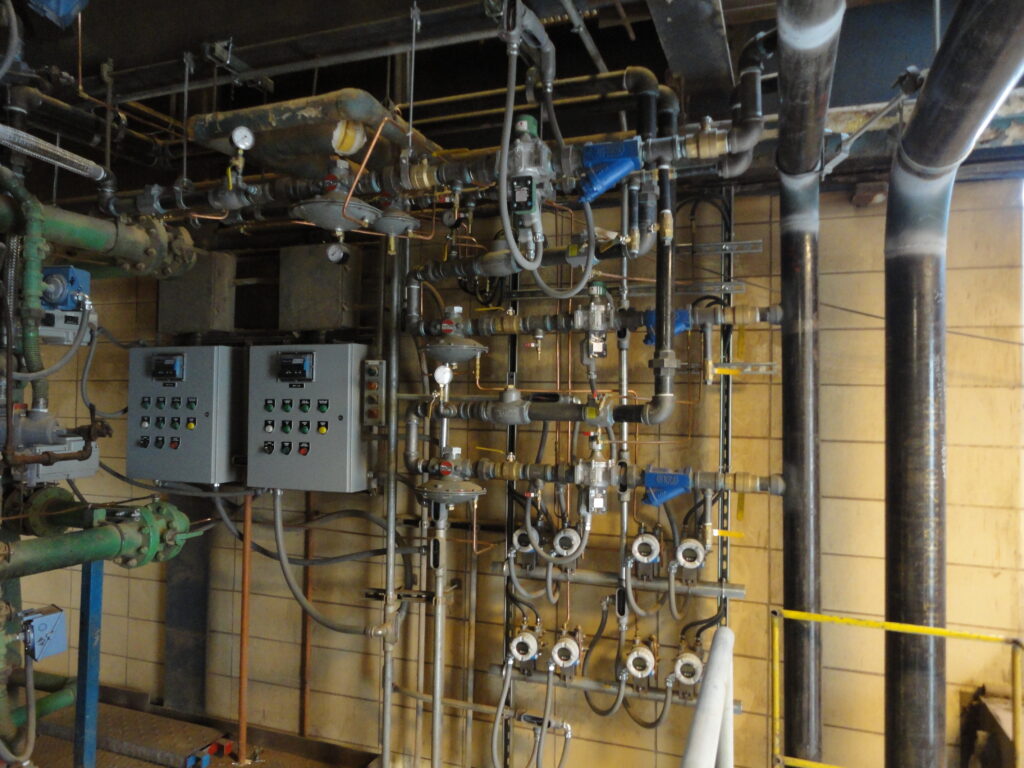Significantly reduced emissions of air pollutants, including carbon dioxide, nitrogen oxides and sulfur oxides by almost 10 million pounds
Over the last two years, DELCORA has implemented a $2.5-million project to modify its two existing 1975 oil-fired sewage sludge incinerators at the Western Regional Treatment Plant (WRTP) with dual-fired burners that are capable of using either natural gas or No. 2 fuel oil. The project involved incinerator modifications, instrumentation and control upgrades, information systems integration and new natural gas utility infrastructure.
implemented a $2.5-million project to modify its two existing 1975 oil-fired sewage sludge incinerators at the Western Regional Treatment Plant (WRTP) with dual-fired burners that are capable of using either natural gas or No. 2 fuel oil. The project involved incinerator modifications, instrumentation and control upgrades, information systems integration and new natural gas utility infrastructure.
After the first full year of the two incinerators’ operation on natural gas, the Authority saved approximately $1.9 million on the cost of fuel; combined fuel savings in 2013 and 2014 exceeded $3.5 million. Moreover, natural gas is the cleanest fossil fuel. Compared with fuel-oil combustion, natural gas combustion releases lower levels of harmful air emissions, including a lower ratio of carbon emissions, nitrogen oxides and sulfur dioxide, as well as lower levels of carbon dioxide, carbon monoxide and other reactive hydrocarbons, no mercury, and virtually no ash or particulate matter.
Thanks to new state-of-the-art digital controls and integration with the plant’s information systems, including the SCADA system, plant operators and supervisors are better able to optimize operation and maintenance of the incinerators. For example, automated control of temperature, draft, scrubber pressure and associated operating parameters decreases fuel use and reduces the build-up of residue (slag) that must be removed.
